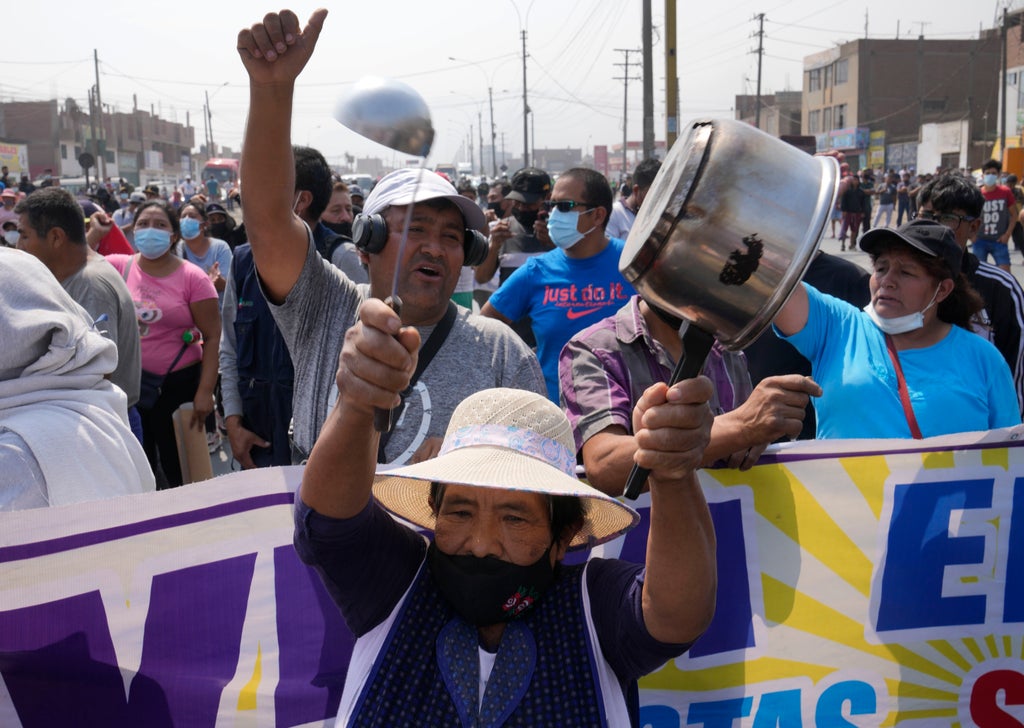
Peru's President Pedro Castillo imposed a tight curfew on the capital and the country's main port in response to sometimes violent protects over rising prices of fuel and food.
Shortly before midnight, the president announced that people must largely stay in their homes all Tuesday, starting at 2 a.m., because of acts of violence, which had included four deaths over the past week, the burning of toll stations and small-scale looting.
He said violence and highway blockades had caused “worry among workers, mothers and the population in general” and imposed the curfew to “reestablish peace and internal order.”
He also extended a state of emergency imposed in early February that restricts some rights to meet and move about and against unauthorized searches.
The decree exempted essential services such as food markets, pharmacies, clinics and trash collection. The measure was similar to the most restrictive lockdowns imposed against the COVID-19 pandemic.
Truckers and other transport workers have been protesting and striking over fuel and food prices, blocking some key highways. In response, the government on Sunday temporarily removed a tax that increases the prices of gasoline and diesel by 28% to 30%.
That supposedly brought the price of diesel down to 47 cents a liter — about $1.78 a gallon. But many of the protesters said stations had adopted the lower prices.
Castillo has acknowledged in recent weeks that the country faces and economic crisis that he blamed on the pandemic and the Russian war with Ukraine.






